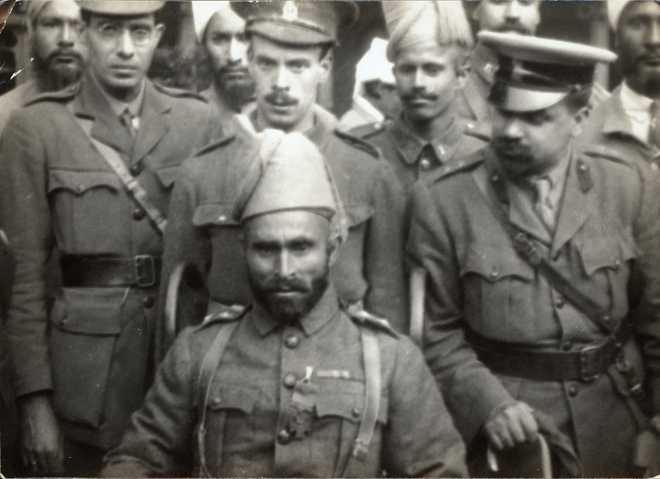Sarika Sharma
Tribune News Service
Chandigarh, November 5
Two brothers, both from India, won top war honours for warring sides during World War I. Mir Dast won the Victoria Cross, the top British honour, while Mir Mast, who deserted the British Indian army, crossed over to the German lines and went on a jihadi mission to Kabul, won the Iron Cross, one of Germany’s highest gallantry awards.
In his new book — India, Empire, and First World War Culture, historian and professor of English at King’s College, London, Santanu Das details the story of Mir Mast, whose trench notes he chanced upon at the National Archives in Delhi during his research in 2006.
Das writes that on the rainy night of March 2-3, 1915, Jemadar Mir Mast, serving in the 58th Vaughan’s Rifles (Bareilly Brigade) at Neuve Chapelle, deserted his camp and quietly crossed over to the German side with a group of fellow Pathans. He became part of a Turko-German jihadi mission and travelled via Constantinople to Kabul. There, he trained fellow deserters and tried to foment an anti-colonial uprising. Anglo-Indian myth has it that the German emperor, Wilhelm II, decorated him with the Iron Cross.
What makes his story curious is the fact that his brother, Mir Dast, was awarded a Victoria Cross for his bravery in the Second Battle of Ypres in 1915.
Along with Mir Mast’s tatty notebook, Das found a hand-drawn trench map. He says there is a possibility that Mir Mast used it to navigate his way to the German trenches.
“For anyone working on India and the First World War, Mir Mast is a remarkable if shadowy figure,” says Das. What makes Mir Mast’s story striking is its contrast with that of his brother’s. Subedar Mir Dast of 55th Coke’s Rifles (Frontier Force) won the Victoria Cross at Ypres when attached to and fighting with 57th Wilde’s Rifles (Frontier Force).
His citation reads: “For his most conspicuous bravery and great ability at Ypres on April 26, 1915 when he led his platoon with great gallantry during the attack, and afterwards collected various parties of the regiment (when no British officers were left) and kept them under his command until the retirement was ordered. Jemadar Mir Dast subsequently on this day displayed remarkable courage in helping to carry eight British and Indian officers into safety, whilst exposed to very heavy fire.”
Mir Dast was wounded and sent for treatment to Brighton Pavilion hospital. George V presented him with his Victoria Cross in the grounds of the pavilion. He died in 1945 in Peshawar.
Interestingly, while Mir Dast is even today celebrated in Pakistan for his contribution, Mir Mast remains largely forgotten.
Unlock Exclusive Insights with The Tribune Premium
Take your experience further with Premium access.
Thought-provoking Opinions, Expert Analysis, In-depth Insights and other Member Only Benefits
Already a Member? Sign In Now











